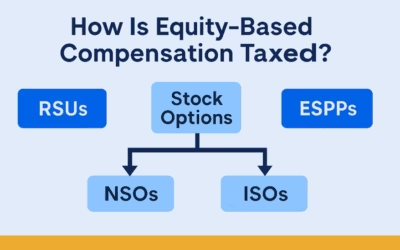What To Expect From IRS Cryptocurrency Audit
What To Expect From an IRS Cryptocurrency Audit — And How to Avoid One
Cryptocurrency Audits are becoming a growing priority for the IRS as digital assets gain popularity. In recent years, the agency has expanded its enforcement efforts and trained specialists to review crypto transactions during audits. If you are selected for a cryptocurrency audit, the IRS will expect detailed records of every wallet, trade, and transfer — and missing or inaccurate reporting can result in penalties.
For taxpayers in Fredericksburg, Northern Virginia, and across the U.S., the best strategy is to understand what happens during a cryptocurrency audit and, more importantly, how to avoid one by filing accurate tax returns from the start.
How an IRS Cryptocurrency Audit Works
An audit usually involves an IRS revenue agent and a specialist whose sole focus is cryptocurrency. Taxpayers are often asked to participate in an interview (sometimes by phone) where both the agent and the crypto specialist are present.
Soon after, the IRS issues Information Document Requests (IDRs) requiring specific records. Items typically requested include:
-
Bank statements for the year under review
-
Unaltered .csv files of all crypto transactions (sometimes from inception)
-
Screenshots, receipts, and transaction confirmations
-
Wire transfer, ACH, and EFT records
-
Records of transactions from crypto kiosks or ATMs
-
Documentation of hard forks, airdrops, faucets, and tipping income
-
Cost basis calculations for each transaction
-
Valuation records for sales, exchanges, or dispositions
-
All correspondence with counterparties and exchanges
The list can be exhaustive, and the IRS often insists on electronic data.
Why It’s Better to Avoid a Cryptocurrency Audit
While being audited is stressful, the best strategy is to reduce your risk of an IRS audit altogether. Many crypto users unintentionally make mistakes that raise red flags, such as:
-
Trading across multiple wallets or exchanges without consistent recordkeeping
-
Using platforms that don’t provide 1099-B forms or reliable cost-basis tracking
-
Forgetting to report crypto received through staking, mining, or airdrops
-
Not reconciling fiat-to-crypto transfers with bank records
-
Misreporting gains because basis information is missing
These issues can result in underreporting, which increases the likelihood of an audit.
Best Practices for Accurate Cryptocurrency Tax Reporting
To stay compliant and lower your audit risk:
-
Use a third-party crypto tax software (such as CoinTracker, TaxBit, or Koinly) to connect wallets and exchanges.
-
Consolidate records across platforms so you have a single report of all transactions.
-
Maintain detailed cost basis tracking (the IRS expects this for every sale or trade).
-
Report all crypto income — including staking, mining, and rewards — even if you didn’t cash out.
-
Work with a qualified CPA experienced in cryptocurrency taxation who can verify reports and reconcile discrepancies.
By doing this proactively, you’ll have everything ready at tax time and significantly reduce the chance of an IRS cryptocurrency audit.
Local and Nationwide Support
If you live in Fredericksburg, Stafford, Northern Virginia, or anywhere in the U.S., AI Tax Consulting PLLC can help you prepare and file your cryptocurrency taxes correctly. We work with clients who have:
-
Multiple digital wallets
-
Trades across U.S. and international platforms
-
Missing cost basis records
-
IRS letters or prior-year noncompliance
With the right planning, you can minimize stress, avoid costly audits, and stay compliant.
Book an Appointment
Need help with cryptocurrency tax reporting or concerned about an IRS audit? We provide personalized guidance for crypto investors, miners, and small businesses.
📞 Call 540-300-8090 or
💬 Book an appointment online



